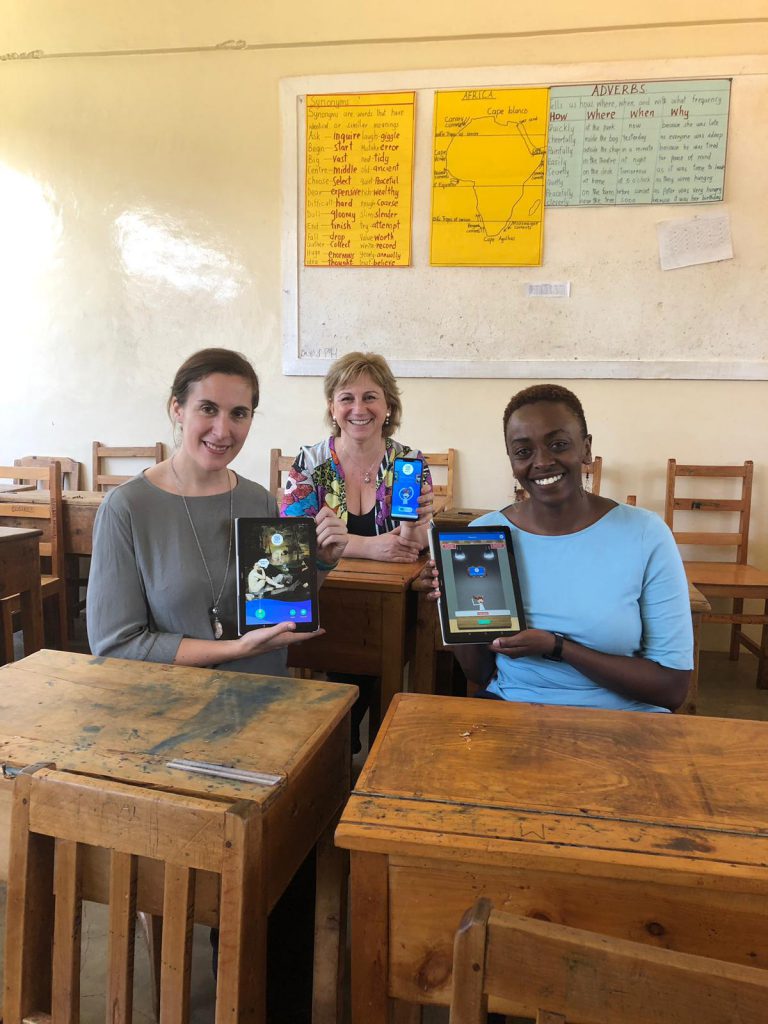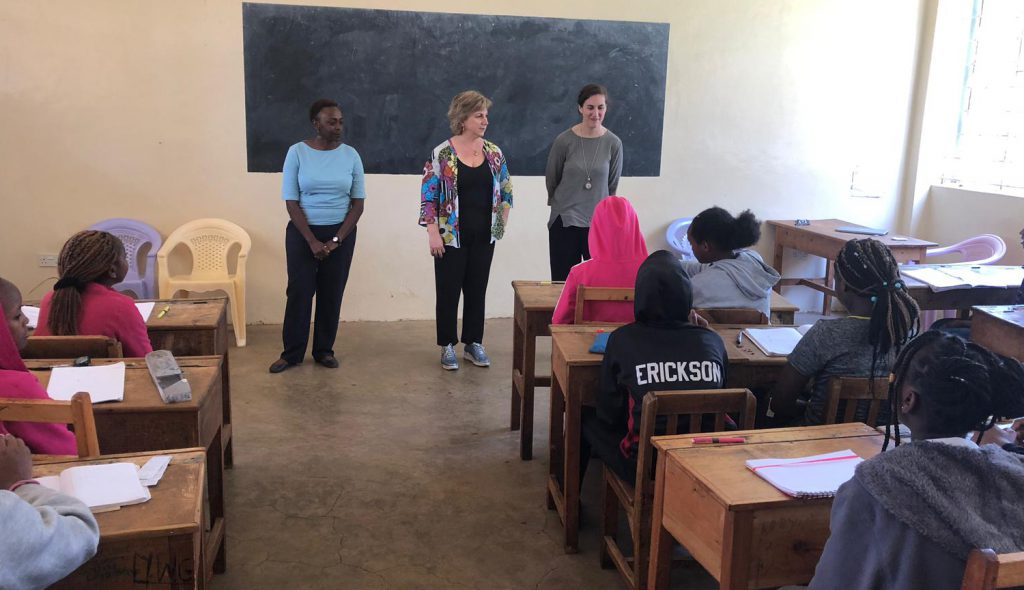08/05/2019
A new project to improve the learning of Kiswahili IN Kenyan schools
Researchers at the URV have adapted to Kiswahili an app originally developed for improving English reading skills (StratApp). Students can improve their reading skills in this language by playing with the app

Researchers at the URV have adapted to Kiswahili an app originally developed for improving English reading skills (StratApp). Students can improve their reading skills in this language by playing with the app
Kiswahili is one of the languages used and taught in the schools in Kenya. However, students often speak other languages at home, and Kiswahili is not their first language. Consequently, students have reading comprehension difficulties, which slow down their learning process.
Researchers Dr.Mar Gutiérrez-Colón and Dr. Ester Torres, from the Department of English and German Studies at URV, have travelled to Nairobi (Kenia) to work with Alicia Ndegwa in the project StratApp-Kiswahili. Dr. Vanessa Esteve, a researcher from the Department of Pedagogy, has provided online support as member of the team. The Polish company Amistad c.o. (http://amistad.pl/en) has created the app. This project was approved from a call launched by the Center of Cooperation and Development “URV Solidària” to develop projects in the field of international cooperation (2019-20).
The aim of this project is to tackle this deficit by adapting to Kiswahili an app originally developed for improving English reading skills called StratApp. Stratapp is a free educational gamified app created in the frame of an European KA2- Cooperation for Innovation and the Exchange of Good Practices, Strategic Partnership Project which is coordinated by Dr. Mar Gutiérrez-Colon: http://stratapp.eu/).
With the money granted by URV Solidària, Laureate School will be able to buy tablets so the students can play with the app and improve their reading skills in Kiswahili. The team of researchers hope that the new methodology will help students to improve their reading comprehension.
Background of the project
Alicia completed the Master’s Degree in Teaching and Learning English as a Foreign Language / Second Language at the Universitat Rovira i Virgili in 2018. In addition to being a student in a subject taught by Dra. Mar Gutiérrez-Colón, Alicia undertook the master’s final project under her supervision. The aim of this research project was to compare teaching methodologies used in class in Tarragona with Nairobi.

One of the main conclusions that arose was the need to increase the level of reading comprehension (among other competences) that students aged 11-13 had. Another conclusion reached was that the very traditional teaching methods used at school made the students lose their motivation. But within that frame, we could also find a two very positive aspects that came out with the data analysis: both students and teachers agreed on the need to change the methodology, and they were open to new ways of teaching/learning.
Actually, Kenya is already working on the improvement of children’s education, by trying to change outdated teaching methodologies, among other interventions. One of the main challenges Kenyan schools face is the integration of the country’s high linguistic diversity in the classroom. Kiswahili is an indigenous language and also a co-official language of Kenya together with English. Both languages are widely used in schools and universities as a medium of instruction. But Kenya has around 68 languages, which provides a very rich cultural background but also brings along into the school a complex situation: in many cases, young students do not master Kiswahili and their learning process is slowed down by the lack of reading comprehension in this language.
For this reason, our proposal collects Alicia’s findings and the technology developed in previous projects and aims to help young students to practice reading in Kiswahili through a mobile application. M-learning often results in higher motivation to go through all texts and activities: passing levels, getting immediate feedback and a layout that does not remind them of the long texts that appear in their textbooks are some of the keys.
During the action, the teachers/researchers will conduct a simple research (pre/post- tests) to check if the app has been useful for the improvement of their reading skills and if there is a need for adjustments. Once this action is completed, the tablets with the activities will be ready to be used by other students of the school, and the app will be available for download by other students, and, in fact, by anybody who wants to improve their reading comprehension in Kiswahili.
